4 years ago, I started my software engineering career at 17. During this time, I’ve had the rare opportunity to work at two innovative companies: Google and Tesla.
You might think I’m some educated wiz kid, but I never went to university. I had terrible grades in school, and my worst grade was ironically in computer science. I don’t come from a wealthy family either.
With that background, no one could’ve predicted I’d end up where I am today. I went from a complete bum to… well… less of a bum.
2025 has begun, marking roughly 4 years since I started learning to code, so I figured it’d be a good time to finally share my unique journey going from newbie to mid-level software engineer at Tesla.
I hope I can inspire young people looking to jumpstart their careers through unconventional routes. I would’ve loved reading something like this when starting out, even though I never used to read.
One of my life philosophies is authenticity, and I see a lack of it in FAANG stories that resort to clickbait tactics to make a quick buck. This post aims to be a breath of fresh air.
Without further ado, I hope you enjoy this glimpse into my journey 🤝
Reincarnated
July 2020, London. I’d just turned 17 and finished my first year of college doing a BTEC Level 3 in Information Technology. In the UK, college means pre-university, similar to senior high school. My college was rough – I’m sure someone got stabbed there.
For the past 3-4 years until then, my routine on non-school days consisted of hopping on my gaming PC immediately after waking up, and grinding games until the AM with the boys.
I was quite good at most games since childhood, but took Fortnite competitively, earning a few grand from tournaments. Embarrassing to admit now since it’s a kids’ game, but I loved it.
The memories I’ve made playing games with friends is priceless, and I wouldn’t trade anything for it. I’m glad I recorded hours of footage to reminisce on.
Then everything changed. I can’t pinpoint exactly what triggered it, but I went cold turkey. Cut ties with friends I’d known since school, deleted social media, and sold all my gaming equipment in the coming weeks.
I didn’t care about the selling price - I needed it gone. I was fed up with myself and knew drastic change was my only route.
After selling my setup, I bought a random refurbished Dell computer - the type you’d use to play Agar.io in the corner of your school’s computer room.
I went from a setup like this:
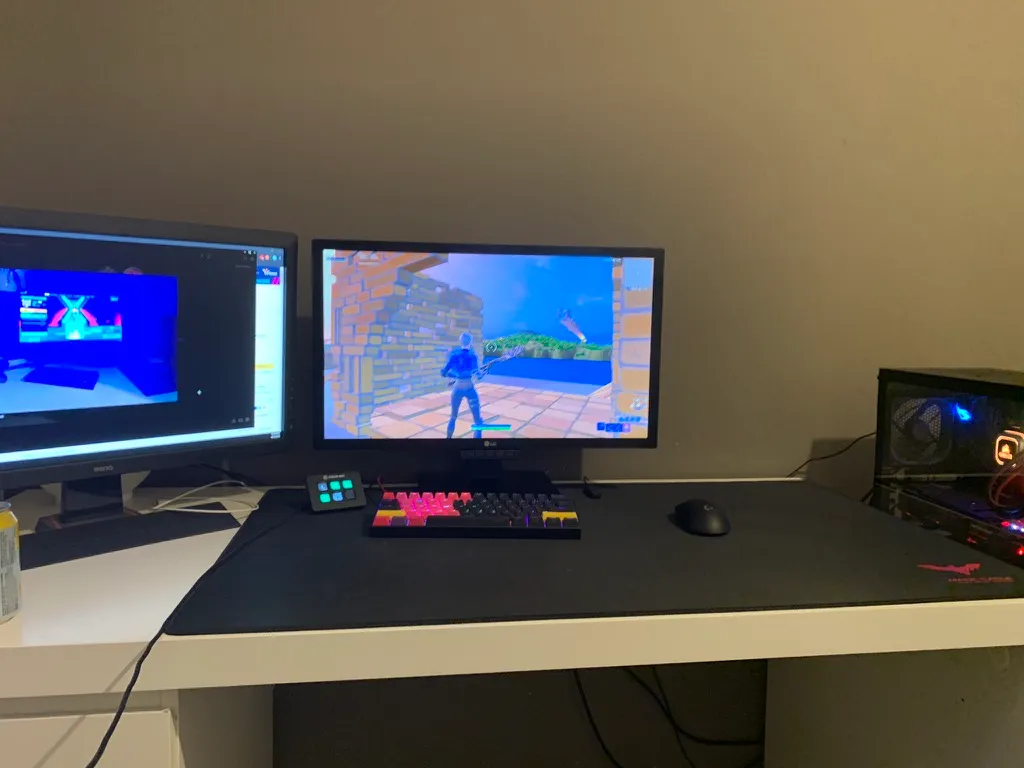
To this:
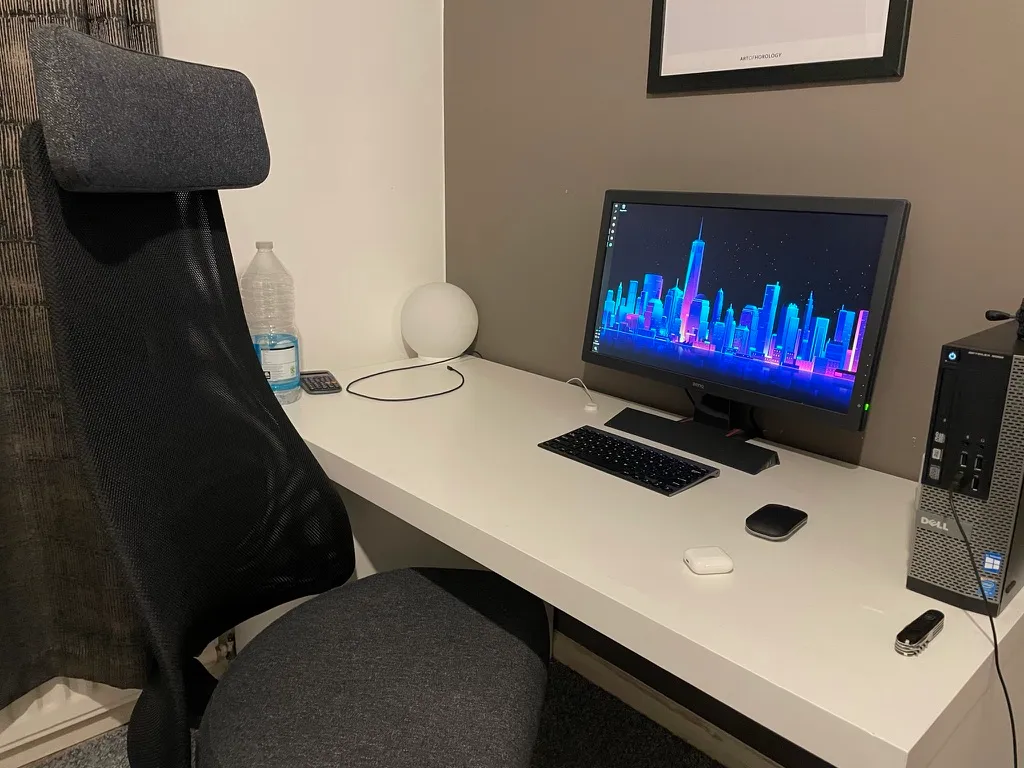
I felt reborn, but transformed into someone almost robotic. The following months were deeply lonely, but I finally broke free from the autopilot state that had consumed most of my life.
I haven’t touched video games since, except I briefly played the Spider-Man series on PS5 after joining Google. I returned it immediately after finishing - the guy who collected it was a bit surprised since PS5s were still hard to find.
My stance on gaming has changed over the years. Initially, I was strongly against it, but now I’ve grown to realise everyone has their own way to de-stress.
I prefer weightlifting, following the Kizen 12 Week Powerlifting program and logging my workouts through Gravitus. It’s more of a duty than a hobby, but I’m progressing on my lifts just as I used to level up in games.
With that said, I think most people struggling with purpose could start by being more intentional with their free time. This isn’t just about video games, but it’s a common trap that boys my age get stuck in.
I still mostly see negatives with gaming. I try to avoid saying this since it’s such a touchy subject and people don’t want to face the truth. Some people make it work though - I mean, shit, look at my boss.
Since I’d carved out gaming (the only thing I did all day) - I started devouring YouTube videos about starting a business. I tried Amazon drop-shipping, which I find hilarious now since it feels like such a scammy thing to do.
I did extensive research but never spent a penny on buying products from Alibaba. In hindsight, that experience taught me a lot about communication, even though I practically did nothing.
University Plans
While exploring business ideas, I also had to think about my future education. In December 2020, I was applying to university. As mentioned earlier, my bad grades limited my options to low-ranked universities.
It’s ridiculous how much you’re punished for doing poorly in secondary school. A number on a piece of paper determines your route and directly impacts your career path. Teachers in my college put so much fear in me about this, as if bad grades would wind me up at jobcentre plus every week.
At this point, I wasn’t even considering anything tech-related. Instead, I applied to Accounting/Finance courses because I wanted to be a finance bro. No trust fund, 6’0”, brown eyes.
First Lines of Code
Around the same time, I’d just watched Fincher’s masterpiece: The Social Network (I know, how cliche), and let me say that it indeed did have an impact on me to start learning to code. The film just made it look so goddamn cool.
I started researching this thing called coding, going through various YouTube resources before settling on HTML and CSS at freeCodeCamp. The quick feedback loop of seeing my code visually do something kept me hooked.
After finishing that, I got bored with just manipulating elements and moved on to learning Python, my first actual programming language. I learned through some Udemy course (even made a video on it). God, I looked so young in that video. I barely stuck with that course for a few weeks.
In 2021, I started building projects using Python and Flask (a web framework). The web space really drew me in.

My first real project was a PS5 stock checker for Amazon - a web scraper that listened for element changes. Basic stuff, but I felt incredibly proud of it.
Eventually the stack felt limiting. Everything was vanilla and lacked the sauce. This led me to the final infinity stone of web development: JavaScript. I found The Odin Project, which turned out to be a solid resource for learning JS/Node.js.
I thought “this programming stuff is pretty cool, I wonder if I could make a career out of it.” After research, I declined my accounting offers and applied to study Computer Science at another low-ranked university. They accepted me, and I was set to start that September.
Building my Website
As you could imagine, I never read books (except the Diary of a Wimpy Kid series). The first “real” book I ever read was Think and Grow Rich.
It was gifted to me by one of my dad’s friends, who preached about how much it changed his life. 17 year old me thought “eh I’ll read it I guess.” Looking back, this book contained a lot of snake-oil BS, but it was exactly what I needed at the time.
Through this newfound interest in reading, I discovered a man who’d change my life: Derek Sivers.
I read his book Anything You Want after seeing it in an Ali Abdaal video. I loved it - it was packed with lessons about life and business.
The first ever book note I wrote was on Anything You Want (link).
I checked out Derek’s website and emailed him a novel of my life story, not expecting a response. To my surprise, he replied. After a few exchanges, I mentioned I’d built a website using Webflow, costing $16 monthly.
This is what he said:
But I don’t think you need to pay $16/month to Webflow. For the kind of site you’re doing, static HTML would be WAY cheaper, more educational for you, and give you total control to move it anywhere, no monthly fee. My best advice to make a simple site is this: Start simple from before you even begin : stay simple in how you think of it, and how you make it. Don’t let people tell you it needs to be any more complex than this. Create one new folder on your computer called “website” and do everything I say below in that folder.
He gave me a step-by-step guide on building a website from scratch using pure HTML/CSS. Mind blown, I immediately switched to hosting on GitHub Pages, and my new open source website was born.
One of his pieces of advice stuck with me:
But for making a new site? Don’t let anyone sell you on some complex solution. They’re saying you need a jumbo jet when really you need a bicycle. Do your HTML by hand like this, and then you’ll know when your site has become so big that you need a little more automation to help manage changes or links to the hundreds of pages inside. But until then, no no no. Just do HTML by hand.
A Life-Changing Opportunity
Now on track to study computer science, I explored the job opportunities. Like any aspiring CS student, I researched the FAANG companies, dreaming of joining them one day.
After spending perhaps too much time polishing my resume, I decided to apply for some work experience before university.
On the Google careers page, I stumbled upon a life-changing opportunity: an early career software engineering position. I applied without much thought, because there’s no way they would give me a cha-
I got a response in 4 days.
A fire lit under me. I immediately started grinding Leetcode, studying Cracking the Coding Interview and reaching out to strangers for mock interviews. I even did a mock interview at 6 AM, barely awake, with an engineering manager from Snapchat in the US.
These were some of the most nerve-wracking yet exciting times. I treated every interaction as a learning experience, detaching myself from the outcome.
While interviewing, I was still set for university that September. I attended the open day and spoke with students about the course. I wasn’t feeling it at all, but felt I had no other choice. The Google position had to work out.
To make it worse, there was a deadline to finalise accommodation before term started. I held off until my interviews were done.
With just 2 days left to accept, my recruiter called. I got the job offer.
After careful thinking, I deferred university and accepted the once-in-a-lifetime offer to join Google.
Before joining, I turned 18 and completed my BTEC.
The Google Years
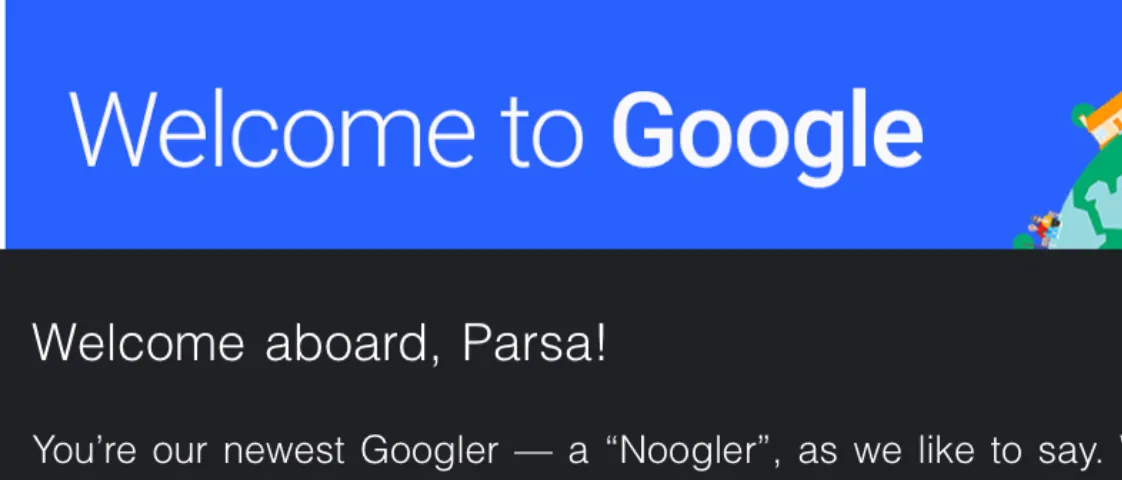
I started at Google in September 2021, completed onboarding and joined the Play Console team under my first manager.
Our team, under an organisation owning the core platform services, managed the messages feature. We ran the pipeline sending developers notifications about necessary app changes.
My mentor, a veteran with a 20-year tenure, was an absolute legend - I learned tons from him. The tooling alone took months to grasp, they say it takes 6 months to find your rhythm.
Ask any current or former Google engineer - the developer experience they’ve built is fascinating. From code searching to editing, reviewing, and deploying, everything is engineered in-house and just works. Pure magic to me.
In the Play Console team, I improved the Java pipeline and built a command-line interface in Go. The tool saved hours of engineering time monthly, earning recognition from a senior engineer.
My learning was compounding exponentially - I was building real software for millions.
After 9 months, I jumped at an opportunity to join the Web on Android team, working across both Chrome and Android organisations.
I was thrilled to work on two of the world’s biggest open source projects.
I worked on WebAPKs, a feature letting users install web apps as native Android apps. Most of my work was in Go, but I also tackled some challenging C++ towards the end.
Our server handled tens of millions of monthly requests, sparking my interest in scalable backend architectures.
The Next Move
My time at Google was invaluable. I worked with brilliant people and felt grateful being the dumbest in the room.
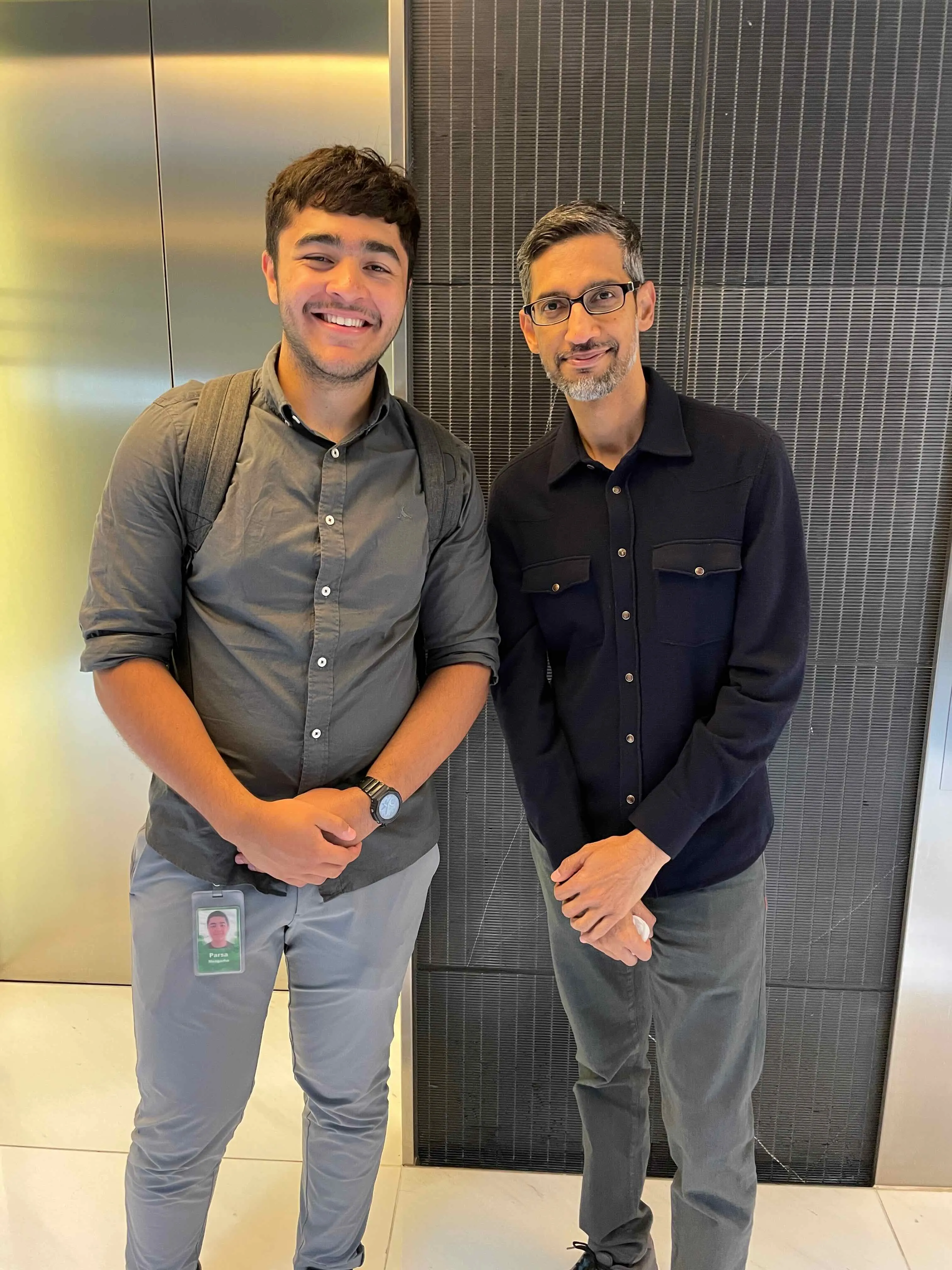
Life at Google was fantastic - free food and gym, smart people, interesting problems. Still, I knew it was time to look for my next opportunity.
I wanted to change everything while young. A new company would bring fresh challenges, but a new city would push me to grow in different ways. At 20, it was time to leave my parents’ home (though I’m grateful for them), learn to live alone, cook for myself - basically become a man for myself.
I returned to Leetcode and reached out to connections I’d made over the past 2 years. Soon I was interviewing with Meta, Spotify, Datadog, Cloudflare, JPMorgan Chase, XTX Markets, Hudson River Trading, and others.
Then the perfect opportunity appeared: Tesla. My friend/mentor Cyrus referred me, and I’m forever grateful to him.
Tesla meant moving to Berlin - close enough to London but far enough for a new adventure. While it’s Germany, Berlin is manageable since English is spoken in most places I end up in. I still started learning German over a month ago.
I went through a few interview rounds with the team, then my recruiter called me to share the fantastic news: an offer to join Tesla.
Funnily enough, I was also interviewing with another Elon company, X. At this point I’d already received the Tesla offer, so I didn’t proceed with the other rounds, but it was still a great learning experience.
Present Day
I’ve been at Tesla since April last year, and it has been one hell of a ride.
The first few months were tough - once the initial excitement wore off, I felt unexpected pressure related to the move weighing on me. Now I’ve found my rhythm and established a good routine, which was my main goal after probation.
My team (I’m sure at least one of you is reading this post) is fantastic. We genuinely enjoy working together, which I’ve learned is crucial. You could have the best product in the world, but if your team doesn’t click, what’s the point? I’m fortunate to have found teams I connect with both professionally and personally.
One thing I find unique about Tesla is that despite being worth over a trillion dollars, it still operates like a startup. I wanted to work in a smaller environment, but I still appreciate not having to deal with a startup going belly up.
Final Thoughts
If you give someone the opportunity to lock in for a whole year, no outside contact, to change up their habits and entire behaviour, do you think they’d do it? I think under the right circumstances they will, especially if the change is drastic enough.
Ever since I made this change I’ve been on a constant cycle of improvement. Most interactions and decisions somehow push me to grow, no matter what they are.
Everyone does this to some extent, but I often feel like it can be damaging since I never feel stable. I don’t hear people speak about this, so I certainly hope I’m not alone.
It’s also worth mentioning that getting in the game early means always being the youngest. To this day, I’ve never worked with someone younger than me. It rapidly matures you, and your social circle becomes much older than you.
It doesn’t sound like much, but it affects you. You can never fully connect with peers your age who are in completely different life circumstances. Don’t get me wrong - I’m extremely lucky and grateful for this position, but I get this feeling that I somehow fast-tracked my way, and I can’t afford to stop.
I can never get back the opportunity to live the full uni experience, which in itself is priceless. You’re surrounded by people the same age and circumstances as you, which helps with building lifelong relationships.
It’s also hard to find a wife, but that topic’s for another time.
Luck played a heavy role in my journey, but it’s because I set myself up in situations to improve the chances of it. The world notices, and lets serendipity reward you.
It goes without saying I’m humbled and grateful for everyone I’ve met through this wild journey. I couldn’t have made it this far without the kind people sharing their time with me.
This is still just the beginning, I have a long way ahead of me.
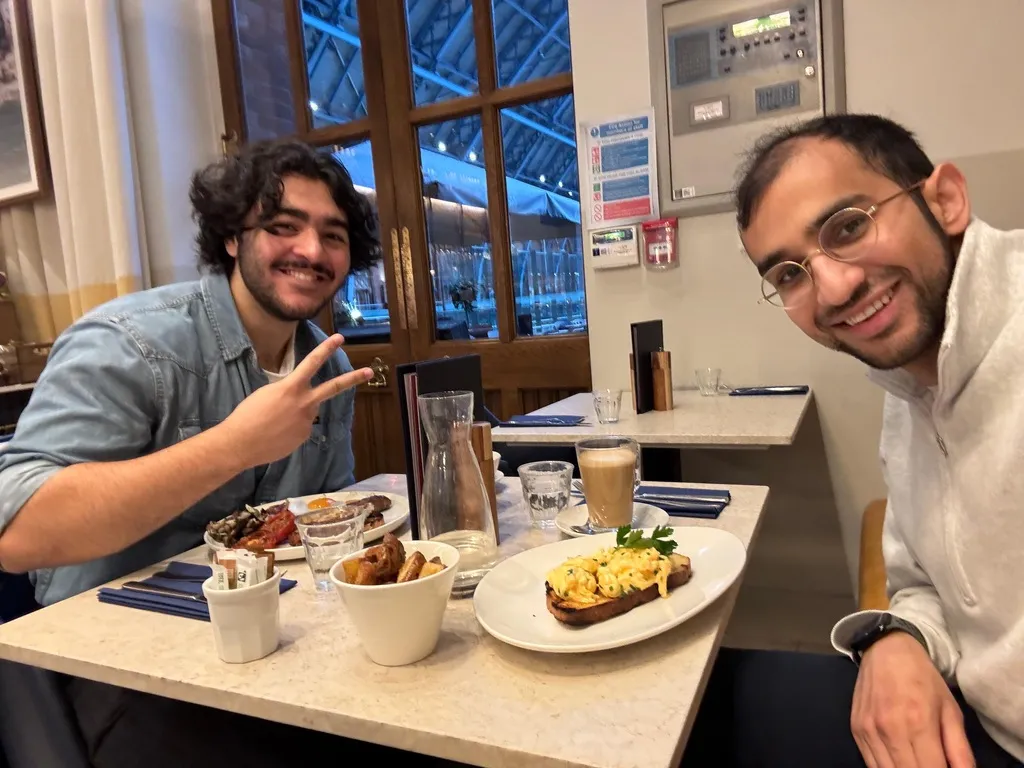 Shoutout to Taimur Abdaal for giving me the idea to write this post.
Shoutout to Taimur Abdaal for giving me the idea to write this post.
I also want to take the time to say thank you so much for reading this far. It means the world to me, and I hope it was of some value to you.